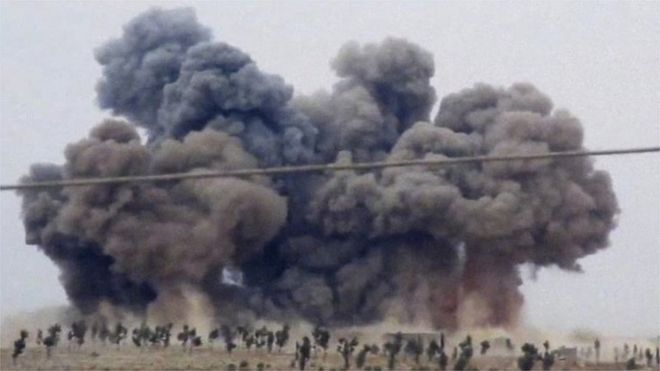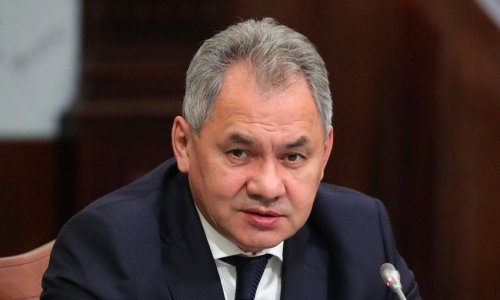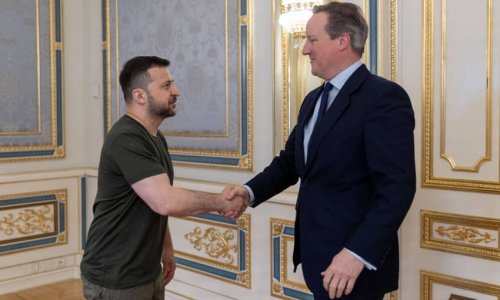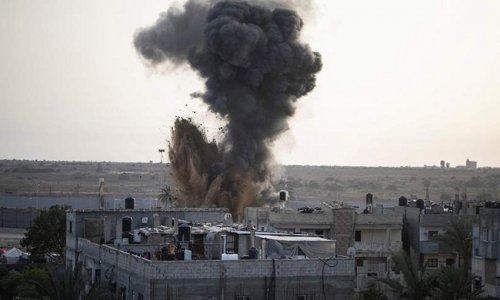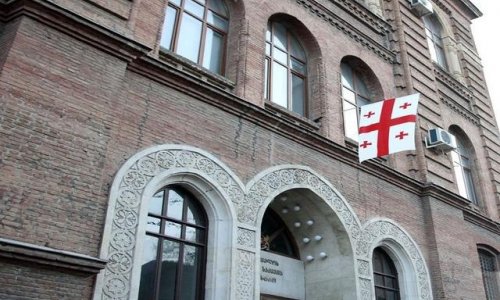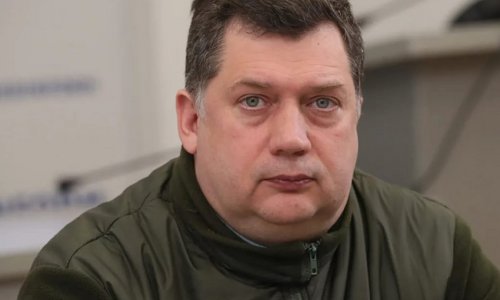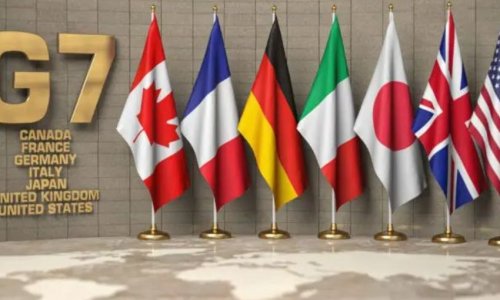As soon as the Russians began beefing up the military airport near Latakia and ferrying in military equipment and men, it was clear they were putting down a marker.
Big-power politics apart, the step was entirely logical within the dynamic of the evolving and mutating conflict in Syria.
The Russian intervention is a game-changer which opens a new chapter in the ever-escalating Syrian saga and lifts it to a yet higher level of crisis.
It carried a clear message: Russia will not allow the regime of Bashar al-Assad to collapse, although Moscow insists it is not wedded to him in person.
Until the Russians threw him this lifeline, it seemed as though the embattled Syrian leader was doomed.
'On the brink'
The tide began to turn early this year. The Western-backed regional powers supporting the anti-Assad rebels - mainly Saudi Arabia, Qatar and Turkey - started working more closely together.
On the ground, the rebel groups similarly began pulling more closely together.
The Americans - in addition to their ill-conceived and ill-fated "train and equip" programme - began pumping in more money and hardware.
As a result, by the spring, the rebels had made significant advances in both the north, (Idlib province) and the south.
In public speeches, President Assad acknowledged that his forces suffered a crippling manpower problem that meant they would have to give up some areas in order to protect more important ones.
The stage seemed set for a steady erosion of the parts he controls, with his diminished domain coming under increasing pressure - perhaps to the point of collapse.
He had already pulled all the obvious rabbits out of his hat nearly three years ago when he was similarly strapped and on the brink.
His Iranian allies stepped in then with increased military support and encouraged their Hezbollah and other Shia militia allies to join the fighting on the ground, where they have played a key role in some areas.
Russia also stepped up military supplies.
But that survival seam was limited. Hezbollah's resources are not infinite.
Neither the Iranians nor the Russians seemed able to come up with enough to tilt the balance back the other way.
Destructive stalemate?
For the West, this opened the tantalising prospect that Moscow and Tehran, desperate not to lose their massive strategic investment in Damascus, might agree to make the necessary sacrifice for a settlement - the removal of Mr Assad and his inner circle - and come to terms on a transition of power that would leave state structures in place but under new, if perhaps not dissimilar, management.
But the Russian intervention has turned that into wishful thinking. It is clearly aimed at redressing the balance that was skewed over the past year by the Americans and their allies, regional and outside.
That doesn't necessarily mean a settlement is ruled out, but if it happens, it won't have the built-in assumption that the regime was on the verge of defeat.
The Russian move is more likely to tilt the balance back to an even playing field, to hold the line, rather than to turn the advantage heavily in the other direction.
To do that, large numbers of quality ground troops would be needed, something Moscow has ruled out.
Which could mean an even lengthier period of destructive stalemate lies ahead.
The Russians will likely use their air power to supplement the Syrian air force in support of embattled Syrian army forces wherever they are most under pressure, playing a role similar to that of the US and its allies in support of the Iraqi and Syrian Kurds.
The latter are combating so-called Islamic State militants, but that is hardly Russia's priority, whatever it may say.
If it was, its jets would be hitting Raqqa in concert with the Western coalition, not the towns north of Homs where regime forces are locked in battle with non-IS rebels, some of them backed by the West.
Big jump
The manner of the surprise Russian intervention clearly shocked Washington and its allies, and set back any prospect of productive settlement talks for the moment.
But it's worth remembering that the two sides have some shared strategic objectives.
Both want to contain, and preferably altogether destroy, the militants of IS.
Neither wants a regime collapse and rebel victory that would inevitably mean Islamic militants taking over Damascus, even if the flags had different shades of black.
But it's a big jump from that to agreement on a diplomatic way forward out of the daily bloodbath.
And at the core of the knot, as ever, is the future of Bashar al-Assad - not just his own person, but everything he stands for, and what kind of Syria his departure would make way for.
(BBC)
www.ann.az
Follow us !

